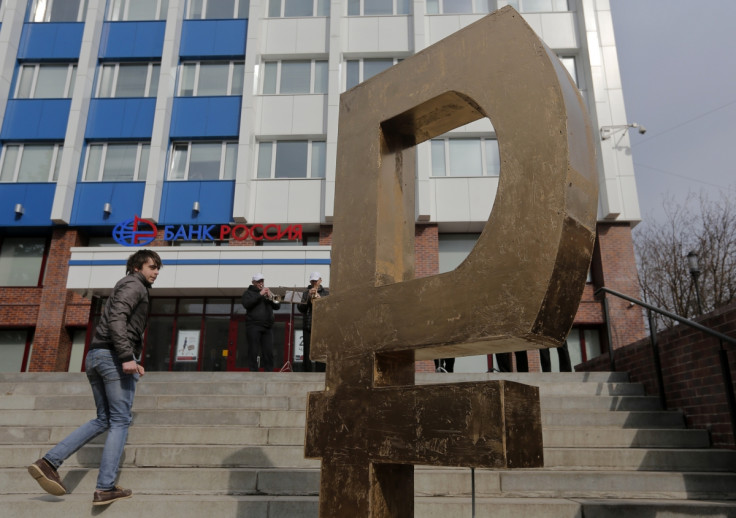Oil Price Plunge Compounds Russian Rouble's Five-Week Slide

Russia's rouble has fallen against the dollar for the fifth straight week, its worst run since the Kremlin annexed Crimea from Ukraine in March.
The country's central bank intervened to the tune of $4bn (£2.5bn, €3.1bn) last week, as Russia sought to ease the impact of sliding oil prices on the ruble.
The bank spent $866m of foreign currency in one day last week, according to data on the bank's website, as global oil prices tumbled to their biggest weekly loss since the start of the year.
Brent crude has dropped 25% since June and had slid to $88.56 per barrel in London today, its lowest level on a closing basis for four years.
Russia's economy is heavily reliant on oil and gas exports, which make up around half of Russia's total revenues.
Russia's President Vladimir Putin had ordered some troops to withdraw from the region bordering eastern Ukraine last week but the news failed to avert the rouble's slide.
Russia's central bank has raised interest rates by 2.5% since March but analysts predict that the central bank will further hike interest rates in a bid to avert the rouble's slide.
"We see the current environment placing a triple challenge before the central bank: accelerating inflation, fast rouble devaluation and weak economic growth," Vladimir Miklashevsky, strategist at Danske Bank, said in a note.
"This may result in 100 basis-point interest rate increase at the end of the month."
© Copyright IBTimes 2024. All rights reserved.






